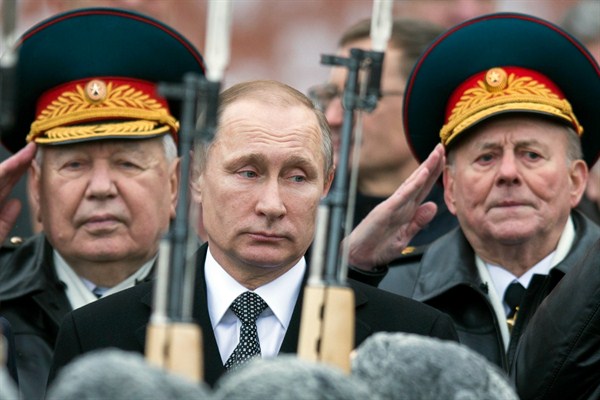Russia’s bold military interventions in both Ukraine and Syria have put Moscow’s geopolitical ambitions back at the center of analysis and debate. Despite last year’s confident claims in Western capitals that Moscow would be unable to sustain its efforts in both countries, there is no indication that the Kremlin plans to alter its policies in 2016. To the contrary, Russian President Vladimir Putin, having decided that core national interests are at stake, has made it clear that he will stay the course.
At the same time, however, Russia continues to pay a heavy economic price exacted by international sanctions and declining energy revenues, which threaten its long-term global ambitions and may generate increasing popular unrest at home. In such a context, one would expect that Moscow would welcome opportunities to shore up and bolster its diplomatic position. And in fact, several geopolitical opportunities did present themselves over the past year, openings for diplomatic engagement that would have facilitated sanctions relief, improved Russia’s economy, and further eroded efforts, particularly on the part of the United States, to isolate and pressure Moscow for its actions in Ukraine and Syria.
Yet, despite the enormous risks and significant costs of its interventions in eastern Ukraine and Syria, Putin’s government failed to seize these opportunities. Four in particular stand out.

